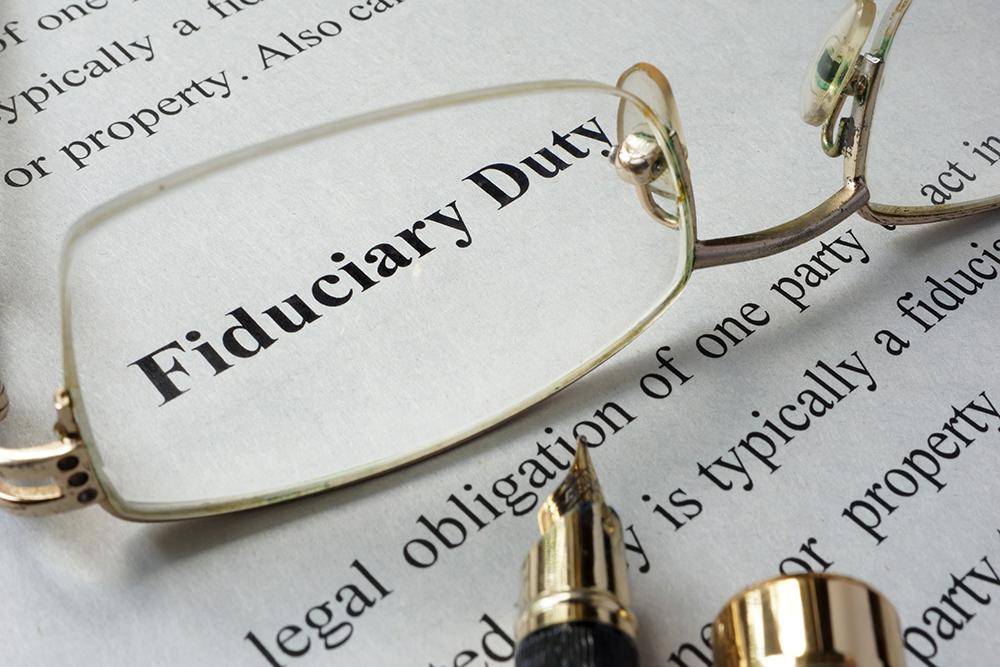Other Featured
Fiduciary Duties in the Context of COVID-19: Guidance for Directors of PE-backed Companies in Latin America
28 April 2020

The sudden and wide-ranging impact of the coronavirus (COVID-19) has resulted in companies facing unprecedented circumstances and challenges. Portfolio companies backed by private equity are no exception to the rule. The pressure on such companies and their boards of directors to respond to the crisis is high and, in such context, directors should be mindful of their fiduciary duties.
While the nature of a director’s fiduciary duties in Latin America has not changed as a result of COVID-19, below Clifford Chance Partner Thais Garcia outlines some best practices for private-equity appointed directors to comply with their fiduciary duties while helping their portfolio companies navigate this challenging environment. Access a more detailed write-up of guidelines here.
By Thais Garcia, Partner, Clifford Chance
Understand your fiduciary duties: Fiduciary duties differ from one jurisdiction to another, and how directors fulfill these duties depends on each portfolio company’s situation and strategy. Such duties may also be enhanced, for instance, when the company faces financial distress or insolvency. Directors need not only to be familiar with the private-equity firm’s policies but also with their specific fiduciary duties as they relate to each individual portfolio company.
Beware of potential conflicts of interest: When dealing with unprecedented circumstances, directors may face potential conflicts of interest. Directors should be proactive in addressing any potential conflict of interest. As a general rule, directors are bound to act in good faith and in the best interests of the company. In countries like Argentina, Brazil, Chile, Colombia, Mexico and Peru, directors are required not only to disclose conflicts of interest but also to refrain from voting if they are conflicted.
Meet regularly and keep proper records: Holding regular board meetings and keeping accurate and complete minutes is key. Remote meetings and telephone calls are widely accepted means of making board decisions, which may be useful these days, given lockdown measures and travel restrictions. A board can protect itself and the company from liability by approaching issues in a consistent manner and documenting the rationale in real time. It is critical to have objective evidence that directors made careful and educated decisions (or, if applicable, voted against certain decisions), supported by the appropriate paper trail.
Be proactive, stay informed and know when to report or escalate: Overall, fiduciary duties require a director to act diligently, make informed decisions and believe, in good faith, that such decisions are in the best interest of the company and, in certain cases, its shareholders and other stakeholders. The duty to stay informed is not passive and requires the active involvement of the directors. Board members should be proactive in calling board and shareholders’ meetings to address COVID-19 issues and any particular challenges that this situation creates for the company. Daily developments emerging on the effects of the pandemic require that meetings be held more frequently and that the board work even more closely with management, its private-equity shareholder(s) and other relevant stakeholders.
Monitor financial conditions and compliance with key contracts: Directors should regularly assess the company’s financial condition and compliance with key contracts, including financial covenants, guarantees and termination events. Directors should also consider the financial situation and prospects of their key clients and suppliers.
Consider sector and other applicable regulations: Directors should be aware of any specific regulations that may apply to the company, for example, to publicly held companies or companies in regulated sectors such as financial services, telecommunication, infrastructure, energy, pharmaceuticals, and insurance. There may be a need to involve regulators in decisions or to keep them informed and consulted. Boards of companies in regulated sectors should be particularly proactive in engaging with governments and regulators as they address the challenges of the COVID-19 pandemic and define their action plans. When and how to approach governments and regulators requires careful analysis by board members.
A recent example of the benefits of early engagement with regulators was seen in the utilities sector in Chile. Due to the major business disruptions caused by the COVID-19 pandemic, public opinion put pressure on both Chilean utilities companies and the government to provide relief to households in connection with the payment of utility bills. Rather than waiting for the enactment of potentially more stringent and onerous regulation by the Chilean Parliament, utility companies decided to engage in discussions with the government to reach an agreement on a relief plan, which was ultimately successful.
Watch out for frequent changes to laws and regulations: Obtaining expert advice (including for waivers, standstills, employee obligations, customer and supplier arrangements, compliance and disclosure obligations, restructuring or insolvency proceedings) is also advisable because of the novel threats and disruptions caused by COVID-19 and the numerous changes in laws and regulation passed daily by governments across Latin America in response to the pandemic.
Are there other interests at stake? Particularly in crisis scenarios, directors should not only consider their legal obligations, including their fiduciary duties, but also other interests and risks at stake. Reputational risk is at the forefront of all current board discussions, and how the directors and the company respond to the pandemic could have a long-term impact on the business and market perception. Additionally, all measures should consider not only the effect on the company in the immediate term to survive the pandemic, but also the long-term consequences and whether they preserve the company’s structure, clients and suppliers for when the company resumes its “normal” operations after the pandemic.
In countries like Mexico, taking effective measures at all times to protect the health and safety of the employees and staff of the company is not only a good practice, but a legal requirement. In fact, directors are deemed legal representatives of the company, as employer, for purposes of health and safety measures in the workplace, and their actions towards the employees in health and safety matters attach to the employer. Mexican Federal Labor Law establishes certain penalties against employers when a health and safety provision is not observed. Any COVID-19 plan should, therefore, aim to protect at all times the health and safety of the employees and staff of the company.
More than ever, be active and remain engaged: Resignation by itself will not discharge a director’s responsibility for breach of fiduciary duties in relation to past conduct. Therefore, remaining on the board, engaged and committed to leading the company through this pandemic, may be the most effective means of mitigating the risk of personal liabilities and ensuring the company is prepared to deal not only with the challenges brought by COVID-19 but also with the opportunities that may lie ahead.
ACCESS THE FULL ARTICLE.
 About the Author: Thais Garcia is a partner at the Corporate/M&A group at Clifford Chance and member of the firm’s Latin America Group. Thais specializes in M&A transactions, restructurings and joint ventures, with a particular focus on the Latin America and US markets. Thais regularly represents corporates, private equity houses, pension funds, infrastructure funds and other investors in their investments in the Americas region. Among the sectors she focuses on are energy and infrastructure, consumer goods & retail, and TMT.
About the Author: Thais Garcia is a partner at the Corporate/M&A group at Clifford Chance and member of the firm’s Latin America Group. Thais specializes in M&A transactions, restructurings and joint ventures, with a particular focus on the Latin America and US markets. Thais regularly represents corporates, private equity houses, pension funds, infrastructure funds and other investors in their investments in the Americas region. Among the sectors she focuses on are energy and infrastructure, consumer goods & retail, and TMT.
Additional Contributing Firms:
Argentina | Marval O’Farrell Mairal
Brazil | Mattos Filho, Veiga Filho, Marrey Jr. e Quiroga Advogados
Chile | Carey
Colombia | Brigard Urrutia
Mexico | Nader, Hayaux & Goebel
Peru | Rebaza, Alcázar & de las Casas
You may be interested in...
-

SoftBank: Latin America and the “Alibaba Effect” in Current Crisis
The following resource was shared with LAVCA by SoftBank based on a communication they...
-

Jaguar Ventures: A View Into the Current Landscape
The following statement was shared with LAVCA by Jaguar Ventures where the fund discusses...
-

AC Ventures: Navigating the Current Crisis
The following resource was shared with LAVCA by AC Ventures based on a communication they...
-

ALLVP: Shifting Forward After COVID-19
The following resource was shared with LAVCA by ALLVP based on a communication they sent...